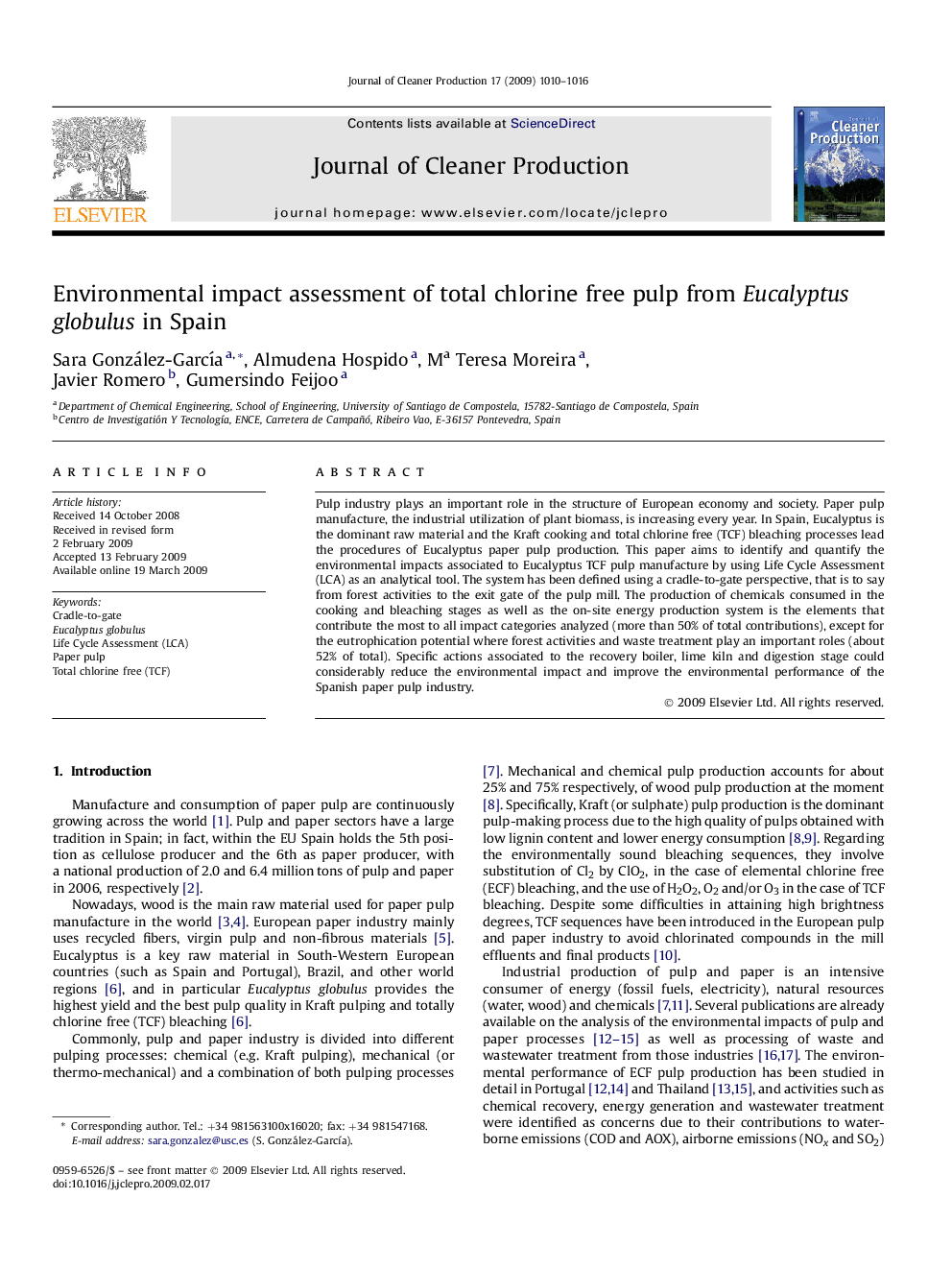| Article ID | Journal | Published Year | Pages | File Type |
|---|---|---|---|---|
| 1746803 | Journal of Cleaner Production | 2009 | 7 Pages |
Pulp industry plays an important role in the structure of European economy and society. Paper pulp manufacture, the industrial utilization of plant biomass, is increasing every year. In Spain, Eucalyptus is the dominant raw material and the Kraft cooking and total chlorine free (TCF) bleaching processes lead the procedures of Eucalyptus paper pulp production. This paper aims to identify and quantify the environmental impacts associated to Eucalyptus TCF pulp manufacture by using Life Cycle Assessment (LCA) as an analytical tool. The system has been defined using a cradle-to-gate perspective, that is to say from forest activities to the exit gate of the pulp mill. The production of chemicals consumed in the cooking and bleaching stages as well as the on-site energy production system is the elements that contribute the most to all impact categories analyzed (more than 50% of total contributions), except for the eutrophication potential where forest activities and waste treatment play an important roles (about 52% of total). Specific actions associated to the recovery boiler, lime kiln and digestion stage could considerably reduce the environmental impact and improve the environmental performance of the Spanish paper pulp industry.
